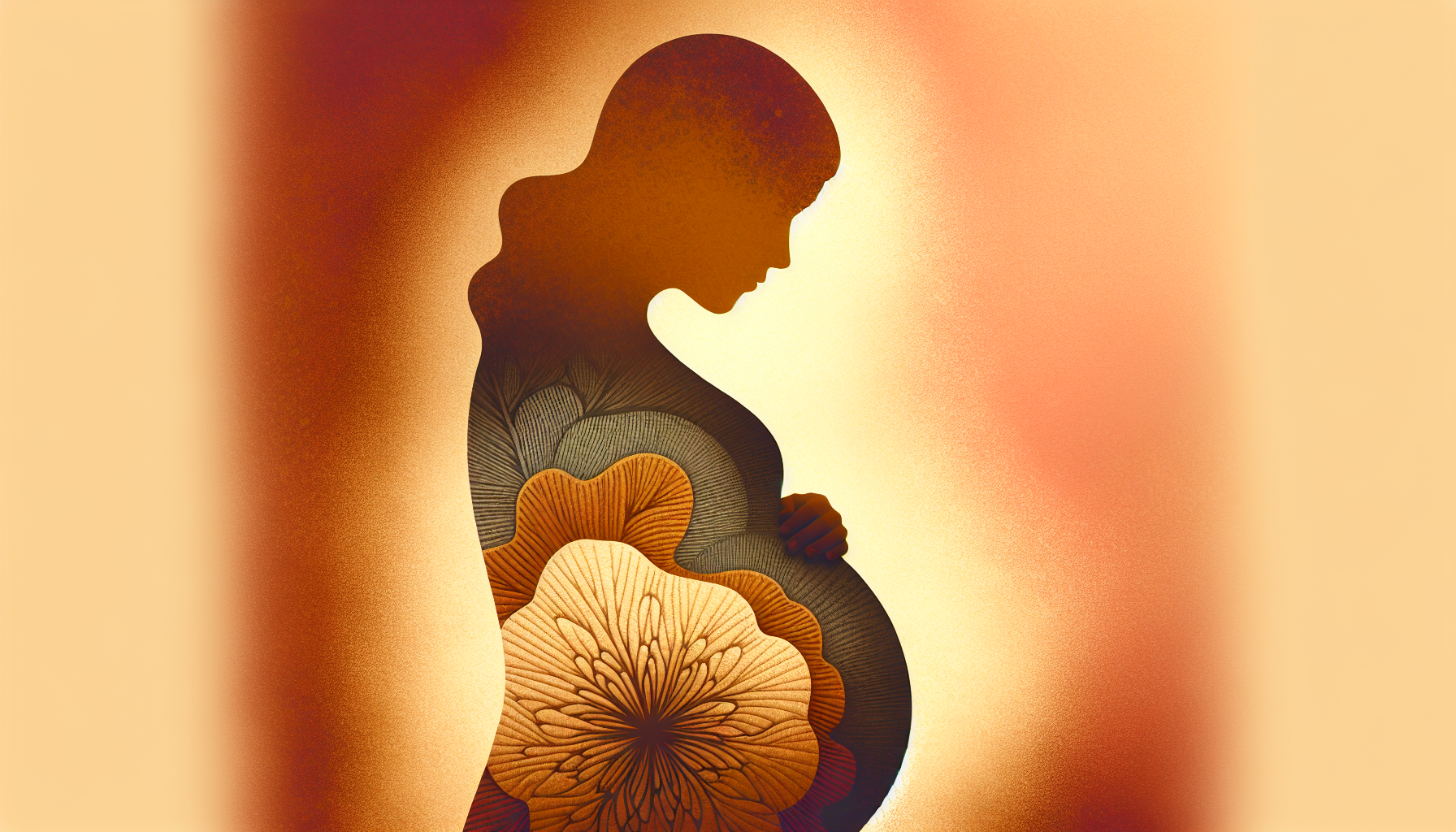
Post-pregnancy, the road to weight loss after pregnancy is a personal journey. This straightforward guide demystifies how new moms can safely return to pre-pregnancy weight. Step-by-step, you’ll learn to balance nutrition, exercise, and mental well-being, tailored to the unique demands of motherhood.
Key Takeaways
Postpartum weight loss is influenced by factors like retained fat stores, hormonal changes, lifestyle habits, and mental health, with a typical timeline ranging from 6 to 12 months for most women.
Healthy eating habits, including nutrient-dense foods, portion control, and hydration, alongside breastfeeding, are key components for postpartum weight loss, with gradual reduction recommended to safeguard milk supply.
Physical activity is essential, starting with low-intensity exercises and gradually increasing, with core strengthening and baby-friendly workouts being particularly beneficial. Ensuring mental well-being through stress reduction and professional help, if needed, can also aid weight loss.
Understanding Postpartum Weight Retention

Gaining weight during pregnancy is a natural process of nurturing a new life within. However, the lingering extra pounds after childbirth can often be a source of concern for new moms. The journey back to pre-pregnancy weight is influenced by numerous factors, including:
the retained fat stores from pregnancy
hormonal changes
certain lifestyle habits
postpartum depression
Keep in mind that postpartum weight loss timeline differs greatly among women, often ranging between 6 to 12 months. For most women, maintaining healthy habits consistently over time plays a significant role in achieving postpartum weight loss.
Fat storage during pregnancy
Throughout pregnancy, your body reserves additional fat to fulfill the nutritional needs of your developing baby. However, this extra weight doesn’t just disappear immediately after childbirth. Your body holds onto these fat reserves, which can be slow to diminish, contributing to postpartum weight retention.
Fear not, adopting a suitable approach will help you lose weight safely and efficiently lose baby weight.
Hormonal changes
Motherhood brings about a whirlwind of hormonal changes. After childbirth, your body experiences rapid shifts in hormones, particularly estrogen and progesterone, which can directly impact your metabolism and contribute to weight retention. Moreover, conditions like Polycystic Ovary Syndrome (PCOS), characterized by hormonal imbalances, can make losing postpartum weight more challenging, especially around the abdominal area.
Lifestyle factors
Apart from physiological factors, lifestyle habits also play a significant role in postpartum weight loss. Some important lifestyle habits to consider are:
Managing stress levels, as high cortisol levels can stimulate appetite and impede weight loss activities
Getting adequate rest and sleep, which are pivotal for postpartum recovery and enable consistent exercise
Prioritizing self-care and making time for activities that promote overall well-being
These habits can greatly aid in weight loss efforts after childbirth.
As your newborn settles into a more predictable routine, you can find opportunities to exercise more consistently. Remember, your exercise plan should be flexible enough to accommodate your baby’s changing schedule.
Healthy Eating for Postpartum Weight Loss

Diet plays a vital role in your postpartum weight loss journey. Developing and maintaining a diverse diet rich in nutrients can influence hormonal levels and aid recovery. Remember, drastic calorie restrictions and crash diets are not the answer.
Sustainable weight loss requires reducing portion sizes and maintaining balanced meals. Consuming energy-providing and nutrient-rich foods is also crucial. If certain nutrients are lacking, vitamin supplements can complement your diet.
Nutrient-dense foods
Nutrient-dense foods are your best friends during postpartum recovery. They provide the essential energy needed for caring for your newborn and your personal healing process. To support a healthy recovery after pregnancy, it’s vital to fill any gaps in dietary intake of essential vitamins and minerals.
Strive for a healthy diet abundant in fruits, vegetables, lean protein, healthy fats, and whole grains, while limiting the consumption of empty carbohydrates and processed food.
Portion control
Being aware of and managing your food portions can aid in regulating calorie intake and avoid overeating, a major obstacle to weight loss. Portion control involves being aware of the amount of food consumed at each meal and is crucial for postpartum weight loss.
A simple trick is to start with small servings and wait 20 minutes before considering a second helping, as this is the time it takes for the brain to register fullness.
Hydration
Hydration should not be overlooked! Staying well-hydrated post-pregnancy helps to decrease swelling, flush out excess sodium from the body, and support lactation for breastfeeding mothers. So, keep that water bottle handy!
Exercise Strategies for New Moms

Physical activity forms an integral part of your postpartum weight loss journey. Depending on your childbirth experience and recovery, you can generally return to light exercise within a few days to weeks postpartum. Initial postpartum exercises should include walking, gentle stretches, or yoga, eventually working up to at least 150 minutes of moderate-intensity aerobic activity per week, such as walking or swimming.
As your strength and recovery progress, follow the 10% rule for safely increasing your exercise distance or duration weekly, while combining consistent healthy eating habits for efficient postpartum recovery and weight loss.
Starting slow
In the realm of postpartum exercise, a slow and steady approach prevails. Here are some guidelines to follow:
Confirm full healing of your abdominal muscles before undertaking more strenuous abdominal exercises such as crunches.
Begin with low-intensity exercises such as walking, stretching, and yoga.
Gradually increase the intensity of exercises as tolerated.
Bear in mind, this isn’t a race, but a journey towards improved health.
Core strengthening
Strengthening the core is imperative for new mothers. Pregnancy stretches and weakens abdominal muscles; core exercises help rebuild these muscles, contributing to a more stable core and reduced back pain. Consistent core exercises can also improve your posture, which often suffers during pregnancy and breastfeeding due to the extra weight and bending involved in caring for a newborn.
An added bonus? Babywearing during exercise can be an effective way for you to involve your baby in your core strengthening routines.
Baby-friendly workouts
Incorporating your baby into your workout can be both fun and convenient. It can enhance bonding, motivate you, and save the need for a babysitter. Stroller workouts, babywearing exercises, and mommy-and-me fitness classes are great options that allow you to include your baby in your workout.
Baby yoga or walking with a stroller are specific baby-friendly exercise activities that not only promote fitness but also create enjoyable experiences for both mother and child. Just ensure you consider the baby’s age and head control before incorporating them into exercise routines, and always use proper form to prevent injury.
Breastfeeding and Postpartum Weight Loss

Breastfeeding, a rewarding journey, offers numerous benefits, including its potential to assist in postpartum weight loss. The act of breastfeeding uses stored fat cells to create milk, helping you shed those extra pounds. Mothers who breastfeed exclusively tend to lose more weight over time compared to mothers who do not breastfeed.
Nonetheless, monitoring calorie intake and the rate of weight loss is vital to ensure a healthy milk supply.
Calorie consumption
Breastfeeding mothers need sufficient calories to maintain their energy levels and milk production. An additional intake of 330 to 400 kilocalories per day is necessary for lactating individuals. Aim to ingest at least 1800 calories per day from nutritious foods to ensure healthy energy levels and high-quality milk.
Remember, nutrition is key, not just for you, but for your little one too.
Weight loss pace
Though breastfeeding can assist in weight loss, maintaining a healthy rate is essential. Rapid weight loss can lead to reduced breast milk supply and nutritional deficiencies, potentially impacting the baby’s growth.
Many new mothers wonder how much weight they can lose while breastfeeding. A gradual weight loss of about half a kilogram (approximately 1.1 pounds) per week is considered safe while breastfeeding. On average, breastfeeding may lead to a loss of 1-2 pounds a month.
Mental Health and Postpartum Weight Loss

The often-overlooked aspect of mental health is a critical component of postpartum weight loss. Postpartum weight retention is strongly correlated with higher levels of stress and depression. This connection highlights the importance of addressing mental health during the postpartum period. Postpartum depression can contribute to weight gain by reducing motivation for physical activity and leading to emotional eating. Therefore, managing stress through relaxation techniques and self-care can significantly aid in your weight loss efforts. Some strategies to consider include:
Practicing deep breathing exercises
Engaging in regular physical activity, such as yoga or walking
Seeking support from friends, family, or a therapist
Prioritizing self-care activities, such as taking baths or reading a book
Setting realistic goals and celebrating small achievements
By taking care of your mental health, you can improve your overall well-being and increase your chances of successful postpartum weight loss.
If postpartum depression or anxiety hinders your weight loss journey, it’s vital to seek professional assistance.
Stress reduction techniques
Alleviating stress is crucial for successful postpartum weight loss. High-stress levels can increase appetite and decrease your motivation to engage in physical activity, impeding your weight loss efforts. Techniques such as mindfulness and relaxation can help reduce stress, supporting your weight management efforts.
Keep in mind, self-care isn’t selfish; it’s indispensable.
Seeking professional help
Postpartum depression or anxiety can significantly impede your weight loss journey. If you’re experiencing these, don’t hesitate to seek professional help. Early intervention can lead to more effective treatment, helping you better cope and enjoy motherhood.
With the advancement of technology, online and telemedicine resources have become vital alternatives for women seeking mental health support, providing effective assistance comparable to in-person therapy. The Substance Abuse and Mental Health Services Administration’s (SAMHSA) National Helpline offers free, 24-hour confidential assistance, connecting individuals to local mental health treatment facilities, support groups, and organizations.
Setting Realistic Goals and Embracing Patience
Establishing achievable goals and displaying patience form the foundation of your postpartum weight loss journey. It’s generally recommended to wait at least 6-8 weeks postpartum before starting to lose weight to ensure recovery and establish a good milk supply.
A healthy pace for weight loss postpartum is recommended to be no more than 1-2 pounds per week. Remember, this journey is about transformation, encompassing not just your body but also your lifestyle, with patience as your trusted companion.
SMART goals
Establishing SMART (Specific, Measurable, Achievable, Relevant, Time-bound) goals can provide structure and ensure accountability in your postpartum weight loss journey. These goals can act as your roadmap, guiding you on your path to a healthier you.
Celebrating progress
Each step forward, regardless of its size, signifies progress. Recognizing your body’s accomplishments post-giving birth, such as birthing and nurturing a new life, fosters positive body image and boosts motivation for weight loss. So, celebrate every pound shed, every healthier choice made, and every active step taken.
You’re on the right track, mom!
Summary
Navigating the journey of postpartum weight loss requires understanding, patience, and a lifestyle approach. From acknowledging the factors affecting weight retention to establishing healthy eating and exercise habits, every step is crucial. Breastfeeding can aid in weight loss, but it’s vital to ensure a healthy pace and sufficient calorie consumption. Addressing mental health and setting realistic SMART goals are fundamental. Remember, every journey is unique, and every step forward is progress. You’ve nourished a new life; now it’s time to nourish yourself. You’re a super mom, and you’ve got this!
Your Emotional Doula & Guide to a Healthy Postpartum Recovery
Embark on your postpartum recovery journey with Shayna Givertz, your Emotional Doula and expert guide through the intricate path of new parenthood. If you’re feeling overwhelmed, lost, or simply in need of a compassionate ear, Shayna is here to offer the support and guidance you deserve.
With her personal experience and professional expertise in yoga and postpartum coaching, Shayna provides a unique blend of emotional and physical support tailored to your specific needs. Connect with someone who understands deeply and can help navigate this challenging yet beautiful phase of life.
Take the first step towards a healthier, more joyful postpartum experience. Sign up now for a free 15-minute consultation with Shayna and start transforming your journey today.
Frequently Asked Questions
How long does it typically take to lose weight after pregnancy?
It typically takes anywhere between 6 to 12 months to lose the weight gained during pregnancy. Every woman’s journey is different, so it’s important to be patient and focus on sustainable healthy habits.
Can breastfeeding aid in postpartum weight loss?
Yes, breastfeeding can aid in postpartum weight loss by using stored fat cells to create milk.
What are some effective stress reduction techniques for postpartum weight loss?
Consider practicing mindfulness and relaxation techniques to reduce stress and support your postpartum weight loss journey. These methods can be effective in managing weight, especially during the postpartum period.
How can I manage portion control to aid in postpartum weight loss?
To manage portion control for postpartum weight loss, start with small servings and wait 20 minutes before considering a second helping. Using smaller plates and preparing healthy snacks in portions can also help.
What should be the pace of weight loss for breastfeeding mothers?
To ensure the safety of both you and your baby, aim for a gradual weight loss of about 1.1 pounds per week while breastfeeding. This pace allows for steady progress without compromising your milk supply.












